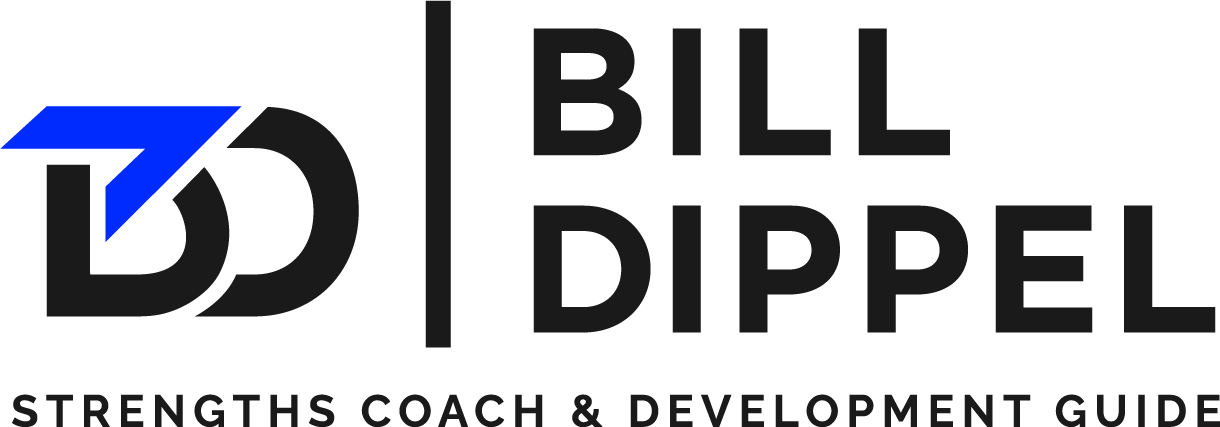How the Most Effective Leaders Identify and Develop Talent Themes
After spending over three decades as both an employee and leader in the corporate world, I realized that many individuals fail to nurture and develop talent themes because they feel trapped in a never-ending cycle of identifying their weaknesses. I saw people become obsessed with “fixing” themselves or colleagues instead of harnessing their strengths. So let’s change that narrative together.
The hard truth is weaknesses can’t really be ‘fixed.’ As a Gallup-Certified Strengths Coach, I provide my clients with the tools they need to manage their weaknesses and leverage their strengths. Using the CliftonStrengths assessment, I can guide individuals and organizations toward refocusing on strength-based performance.
We all have blind spots when seeing or believing in our natural talents. That’s why it’s essential to ask questions like, “What makes me uniquely powerful?” and “How can my talents help me manage my weaknesses?”
I’ll help you find the answer to both questions, but first, I’d like to talk about the benefits of having self-awareness during the strength development journey.
“By balancing your weaknesses and leveraging your natural talents, you create the ideal environment for your strengths to develop maturely.”
 Practice Self-Awareness Skills for Better Business Results
Practice Self-Awareness Skills for Better Business Results
In a perfect world, having the combination of knowledge and skills necessary for success in business and life would be ideal. You’d also probably drive the hottest car on the market, own your dream home, and have a winning lottery ticket in your pocket.
If I had a magic wand, I would love to grant you everything you want most in life. But here in our imperfect world, we all have things we’re good at, so-so at others, and not great at some. If you’re a leader or entrepreneur, this can be frustrating because you want to excel at everything.
Or maybe you have always been the over-achieving type with an outstanding track record, which makes it harder to see what you are doing that is not working. Either way, managing weakness and cultivating strength begins with working on your self-awareness skills.
According to Gallup, people who develop awareness and ownership of their strengths are more transparent and able to be more forthcoming about their weaknesses.
Self-awareness is a central pillar for any successful leader—it can give you a deep understanding of your strengths, weaknesses, capabilities, and limitations. Self-awareness can also give you the ability to lead with authenticity and trust while building solid relationships through open and honest communication.
So, how do we cultivate and develop our self-awareness skills further? Here are five ways to do so:
- Meditation (yes, I said it) will help improve moment-to-moment awareness.
- Think about what you want to achieve, write it down, and track your progress.
- Take a CliftonStrengths assessment to understand your interests and characteristics better.
- Ask your trusted friends for feedback.
- Seek formal and constructive feedback in the workplace.
And with the helping hand of a Gallup-Certified Strengths coach like me, you will start to see other perspectives and even learn to appreciate your weaknesses. You’ll also quickly learn that the winning lottery ticket in your pocket is meaningless if you don’t know how to use it efficiently, just like your talents that haven’t been unleashed.
Okay, so now that you’re mindful of your weaknesses, let’s talk about some of the clues that can help you develop talent maturely, both in life and professionally.
 Identify and Dive into Your Natural Talents
Identify and Dive into Your Natural Talents
According to Gallup research, developing people’s talent and strengths can lead to significant growth in performance, along with greater engagement, well-being, and business results. But what if you don’t know what your top talents are?
Here are some clues to point you in the right direction. These clues to talent listed below not only manifest through the way you showcase them, but they also act as a lens through which you perceive the world. Here’s how to spot your natural talents so you can begin devloping them into strengths:
Yearnings can serve as a potent source for identifying and honing our talents early in life. Yearnings are like an inner voice or force pushing a person to pursue certain interests and aspects of life. So, if you ever find yourself saying, “I’d like to do that,” pay attention as yearnings often highlight and reveal the presence of a powerful talent.
Rapid learning is a crucial tool in unlocking and exploring one’s hidden talents. In these settings, a person can quickly learn and adapt to new situations and challenges. This acquisition of new skills and information can also be an excellent indication of powerful potential within us. When we experience rapid learning, it feels like a switch has been turned on, illuminating the full extent of our capabilities.
Flow refers to a state of intense focus and immersion in an activity, causing a state of timelessness to occur. People who experience flow seem to possess innate abilities in the area, almost as if they have a natural talent for it. Flow is an unconscious response to stimuli that leads to exceptional performance, providing insight into an individual’s inherent gifts and abilities.
Glimpses of excellence are often hard to detect, but as you continue to work in your strengths zone, your performance will likely mirror that advancement. You’ll go from performing well to outstanding, and your greatest talents will emerge. You may even surprise yourself with your success.
Satisfaction results from using your natural talents maturely and reaping emotional and psychological rewards. The feeling of satisfaction is not momentary—it forms deep-rooted motivation and energizes a person to continue doing an activity. Similarly to yearning, these experiences will make you appreciate and value your unique talents. In this, you should feel content, fulfilled, and genuinely happier.
As you dive deeper into your talent themes and work on enhancing them, you’ll become increasingly aware of their role in your personal and professional success. The more you recognize this correlation, the more you’ll see your potential for further fulfillment.
You may wonder, “How do I make sure I’m using my strengths maturely and not allowing my weaknesses to hinder my progress?”
Strength is like a muscle—the more you use it, the stronger it will be. The same applies to our weaknesses. So, it’s essential to invest and develop talents productively. Here’s how I can help you do that with my strength-based approach.
 Weaknesses and Strengths: A Dynamic Partnership
Weaknesses and Strengths: A Dynamic Partnership
First, it’s important to understand that weaknesses cannot be transformed into strengths. Instead, our weaknesses must be acknowledged, compensated for, and effectively managed.
On the other hand, our strengths are capable of continuous growth and development, providing an endless and renewable source of potential for improved performance. For organizations, assisting employees in managing their weaknesses is a key component of effective strength-based development.
So, if you’re using a talent immaturely or a weakness is hindering your success, the solution is to manage it and focus on developing your strengths. This can be achieved by taking a mental inventory of current knowledge and skills to add to our talents.
You’ll also want to consider what new information you need to be more effective. To do this takes practice, which is why your strengths are your most valuable investments.
You must be self-aware and take responsibility for your weaknesses. Let me clarify: taking responsibility should not be associated with blame or fault-finding. Accountability is vital in driving positive change and fostering personal growth.
Adopting a strength-based approach will help you understand your weaknesses. It will also help you be more honest with yourself and others about the areas in which you struggle.
By balancing your weaknesses and leveraging your natural talents, you create the ideal environment for your strengths to develop maturely. Investing in your skills, knowledge, and practice will undoubtedly bring you more success and positive outcomes.
Your top talent themes are where your hidden and strongest strengths lie—many are waiting for you to notice them. These themes are deeply rooted in our passions and can provide valuable insight into what drives our success. So, don’t ignore them any longer. Now’s the time to examine your yearnings, past achievements, and what motivates you most.
Want to learn more about using your natural talents to develop your strengths and manage your weaknesses maturely? Here are three easy steps to do just that:
- Schedule A Call. Set up a complimentary 15-minute call. We’ll discuss your needs/goals and how I can help you have conversations that count.
- Get A Plan. I’ll make custom recommendations based on your needs or the needs of your team and present a plan.
- Leverage Your Strengths. Apply your natural talents and abilities to become more effective and get a fresh lease on life.


Recent Comments